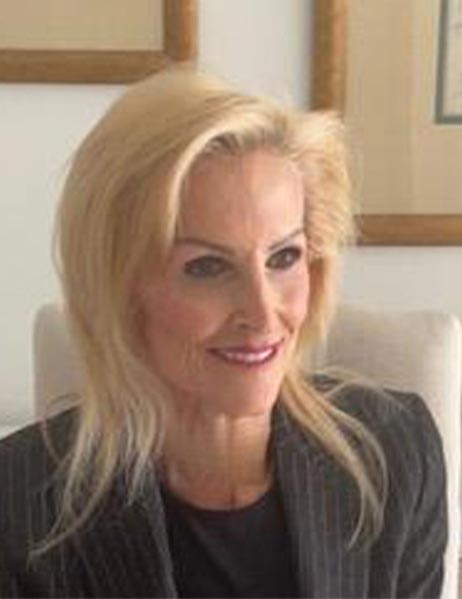Carol Gould

Carol Gould
Philosophical Practitioner & Philosophy Professor
Expertise:
Philosophy, Classics, Art Studies
Available for in-person lectures in:
South Florida
Available via Zoom?
Yes
To book Carol, e-mail:
dan@hudakonhollywood.com
Carol Steinberg Gould is Emerita Professor of Philosophy at Florida Atlantic University and Senior Distinguished Fellow at the Center for Future Mind in the FAU Brain Center. She is a Philosophical Practitioner certified to work with individuals and organizations. She is a member of Phi Beta Kappa, The American Philosophical Association, The American Society for Aesthetics, and American Philosophical Practitioners Association, among other societies. She is Associate Editor of the leading international journal in the field of Philosophical Practice (sometimes called ‘philosophical counseling.’). She spearheaded the founding of both the Jewish Studies and Classical Studies Program at FAU and has twice won the FAU University Award for Teaching Excellence. She has lectured in the community on many topics ranging from the trial of Adolph Eichmann to Plato on love, and the ethics of women in ground combat.
Lectures include:
What Makes a Person Evil, and Should We Ever Forgive Them?
Platonic Love: It’s Pretty Sexy
We think of Platonic lovers as close “friends with no benefits.” But Plato saw love as deeply erotic, a joint quest for the good life that had to include sexual passion. But, as we say today, “it’s complicated” because without carnal attraction, the relationship would never get off the ground. We must become intrigued by someone if we are going to pursue even a conversation, let alone a close connection. Why one person rather than another? Plato was endlessly fascinated by love and wrote about it throughout his long creative life. We can learn much about the human condition by exploring Plato’s views on love and sex.
Plato Vs. Democracy
Plato came from a powerful family during the Golden Age of the Athenian Democracy. Yet, he ferociously attacked democratic systems of government, claiming they inevitably lead to tyranny. In this lecture, we will focus on his arguments in his well-known “Republic.” Some believe his arguments speak to our current situation. This will be for you to decide.
God Conundrums
Even if you’re not religious, you may have wondered about the existence of God, the omnipotent, completely good, all knowing being. But before we start wondering whether God exists, we have to make our way through a thorny thicket of paradoxes. Is perfection even logically possible? Can an all-powerful being remain all-powerful if He gives us human beings free will? And if we do have free will, then how can he know what we’re going to choose? Can there be a perfectly good being in a world with so much suffering? In this lecture, we will probe these fascinating paradoxes.
The Elusiveness of Glamour
Marc Chagall and Chaim Soutine: From Shtetl to Paris
Marc Chagall and Chaim Soutine were both original, influential modern artists who were born in the shtetels of Belarus and ultimately found their way to Paris. Soutine (1893-1943) and Chagall (1887-1985) both came from poor Jewish families and each went on to be canonical artists of the twentieth century. As visual artists, they each challenged a tenet of Judaism. Yet their artistic styles and contributions were vastly different. Chagall’s shows a Jewish influence, Soutine’s a rejection. In this lecture, we will explore their artwork and its relation to Judaism.
Japan and Paris: The Roots of Modernism in Western Painting
Take a walk through Manet’s house in Giverny, and you will see walls plastered with Japanese woodblock prints. Had Japanese art never made its way to Paris, Western art would likely not have seen Impressionism and Post-Impressionism. Renoir, Cezanne, Picasso, Matisse, all might have become artists, but their work would not have been the same. In this lecture, we will explore the nature of Modernism and how it was formed by Japanese art and Buddhism.
Psychoanalysis & Judaism
Each session should be scheduled as a separate lecture.
Psychoanalysis & Judaism Session One: Is Psychoanalysis a “Jewish Science?”
Psychoanalysis has had a powerful influence on Western culture, so powerful that people sometimes refer to modernity as a post-Freudian era. We know that Sigmund Freud was Jewish, read Hebrew fluently, had a deep knowledge of Jewish theology, and that he was the founder of psychoanalysis. Why, though, has it been called a “Jewish Science?” In this talk, we focus on what psychoanalysis is, how it led to a new paradigm of understanding the human psyche, and how Freud’s Judaism led to his developing this mode of therapy.
Psychoanalysis & Judaism Session Two: Do Psychoanalysts Really Believe in the Oedipus Complex?
This class will concentrate on psychoanalysis as a mode of healing by interpretating a person’s gestures, speech, and dreams as expressions of the unconscious. In what sense can the “talking cure” heal a patient? We explore the terrain of Jewish theology and texts that influenced Freud as he developed his system and uttered his final statement in Moses and Monotheism.
Philosophy of Aging
Now, more than ever, we need philosophy of aging. In the U.S., Baby Boomers (born between 1946-1964) number 78 million and are the fastest growing age segment of the population. As they became a larger share of the workforce, they acquired more economic, social, and political power. They continue to transform fashion, the arts, and politics. Their lives created the world in a way no one could have imagined. It is because of them, the “grey panthers” that age, gender, and racial discrimination became illegal, that PTSD entered the DSM, and sexuality shed its taboo. And now as they are aging, we can no longer ignore either the problems or rewards in the later stages of life.
What follows are four lectures that cover the topic from a variety of perspectives:
Successful Aging Is Not New: Wisdom from the Ancient Philosophers
Sex, Love, and Romance
Art, the Body, Gender, and Aging
Many artists depict their aging selves in their self-portraiture, others in film or dance. They give us a glimpse into their life reviews, which may include their anxieties about their bodies and status. In a culture that still values youth, we are in the midst of a paradigm shift. On the one hand, we see more older fashion models and depictions of older persons in positions of power. On the other hand, beauty standards still favor the young and powerful, leaving many seniors feeling perplexed and anxious about their self-worth. Some theorists in both psychology and philosophy argue that men experience the aging body differently than women. Yet, we are starting to see artists, such as Joan Semmel, portray themselves in nude self-portraits, which show a confidence in their sexuality that equals that of some men. This would have been unthinkable thirty years ago. In this session, we will inspect the portrayal of the aging self in the arts so that we may better understand the internal experience of aging.
Finding Purpose and Meaning in Later Life
Are you ready to bring Hudak On Hollywood to your community?
Please e-mail dan@hudakonhollywood.com for additional information. We look forward to hearing from you!
